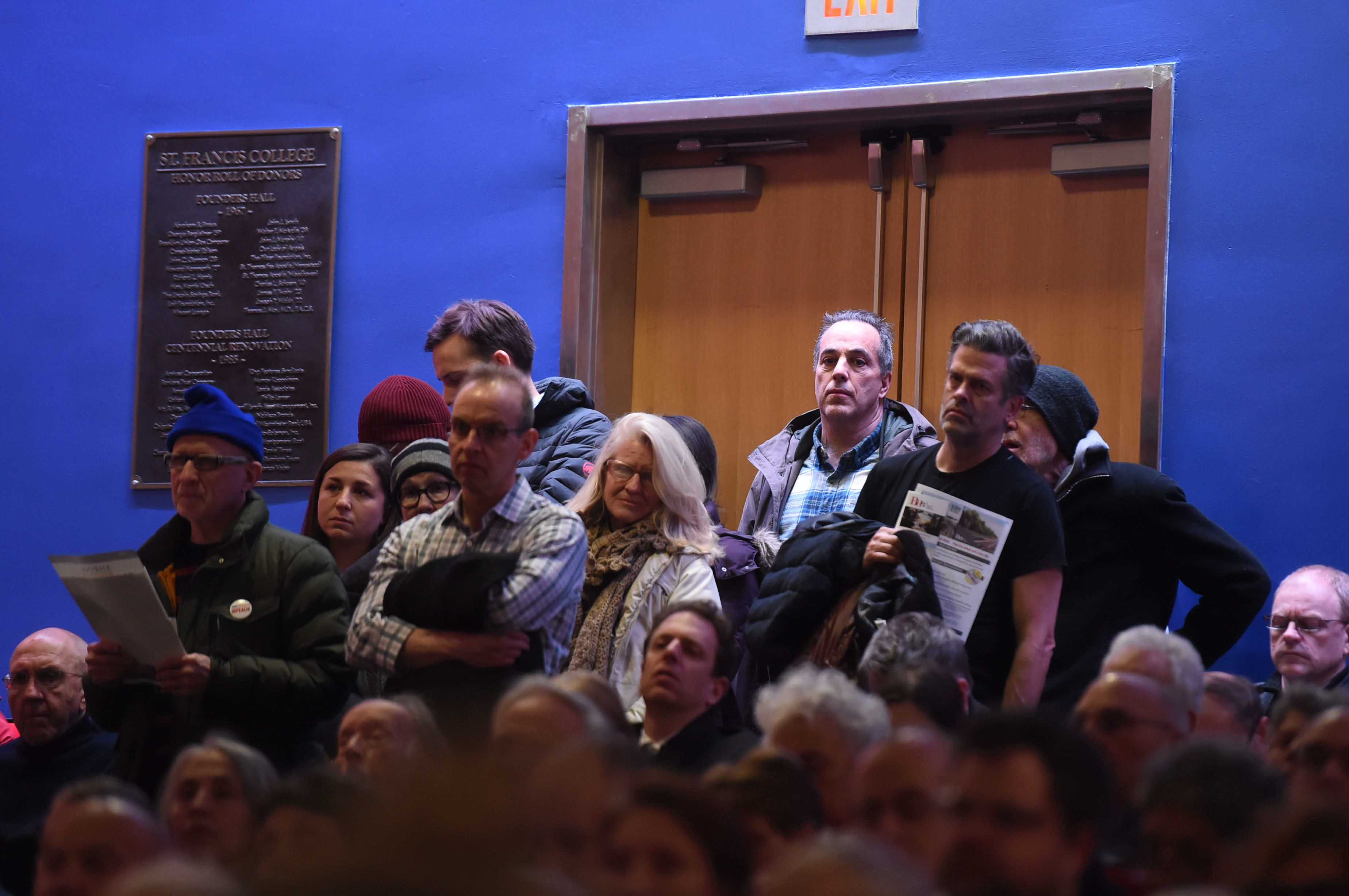BQE concerns headline Brooklyn Heights Association annual meeting
Group also grapples with Brooklyn House of Detention, BQX issues

The Brooklyn Heights Association’s annual meeting drew a standing-room-only crowd to the St. Francis College auditorium on Tuesday night. Eagle photos by Todd Maisel
St. Francis College’s 300-seat Founders Hall was standing room only Tuesday night for the Brooklyn Heights Association’s annual meeting.
The topic personally affecting most of those in attendance — the city’s plans for the reconstruction of the BQE — was called “the most consequential development to affect this area for decades” by BHA President Martha Bakos Dietz.
Related:BHA panel asks: Who is planning Brooklyn’s future?

Brooklyn Heights
View MoreRead the Brooklyn Height's Press and Cobble Hill News. Find out more about Brooklyn Height's History here.